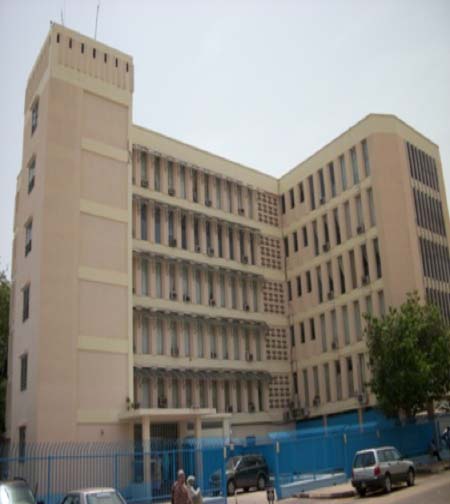
The
Gambia’s domestic debt has risen to D25.1 billion at end-June 2016, according
to the Monetary Policy Committee (MPC) of the Central Bank of The Gambia (CBG)
In
a press release sent to this paper over the weekend, the MPC stated that whilst
money supply contracted by 0.2 per cent in June 2016 compared to a growth of
11.9 per cent in June 2015, the country’s reserve money, the Central Bank’s
operating target, grew by 18.6 per cent in the year to end-June 2016 from 19.7
per cent a year earlier.
“The
domestic debt rose to D25.1 billion at end-June 2016 compared to D20.5 billion
the same period last year,” the MPC report stated.
It
said outstanding stock of Treasury bills and Sukuk Al Salam (SAS) combined,
which accounted for 61.4 per cent of the debt, increased to D15.6 billion or
12.2 per cent from last year.
Whilst
yields on the 91 day and 182 day treasury bills declined to 17.15 per cent and
17.83 per cent in June 2016 from 17.28 per cent and 18.44 per cent in June
2015, the report indicated, yield on the 364 day bills, on the other hand, rose
to 21.85 per cent from 21.45 per cent a year ago.
“Yields
on the 91 day and 182 day SAS declined to 17.5 per cent and 17.9 per cent in June 2016 compared to
17.6 per cent and 18.4 per cent respectively in June 2015. Yield on 364 day
SAS, on the other hand, rose to 21.90 per cent from 20.54 per cent in June
2015,” the MPC report added.
Government
Fiscal Operations
The
Report stated that preliminary data on government fiscal operations for the
first half of 2016 shows that total revenue and grants amounted to D4.29
billion (10.9 per cent of GDP) in the corresponding period a year earlier.
“Domestic
revenue, which comprises tax and non-tax revenues, increased to D4.2 billion
(9.8 per cent of GDP) compared to D3.9 billion (9.8 per cent of GDP) in the
corresponding period a year earlier,” it stated. “Tax revenue grew by 7.6 per
cent to D3.8 billion whilst non-tax revenue declined by 5.4 per cent to D345.1
million.”
The
report further stated that total expenditure and net lending for the first half
of 2016 amounted to D5.8 billion (13.7 per cent of GDP), higher than D5.5
billion (13.8 per cent of GDP) in the first half of 2015.
“Recurrent
expenditure stood at D5.2 billion (12.3 per cent of GDP) or 33.0 per cent and
59.3 per cent increase in other charges and interest payments respectively.”
The
overall budget deficit (including grants) widened to D1.5 billion (3.6 per cent
of GDP) for the first half of 2016 compared to deficit of D1.2 billion (2.9 per
cent of GDP) in the corresponding period a year earlier, the report stated,
adding that the budget deficit (excluding grant) was D1.7 billion (3.9 per cent
of GDP) from D1.6 billion (4.0 per cent of GDP) in the same period last year.
Inflation
outlook
Referring
to inflation in the country, the MPC report stated that consumer price
inflation, as measured by the national consumer price index, declined slightly
to 7.1 per cent in June 2016 from 7.2 per cent a year earlier, due “solely to
the decline in food inflation”.
It
stated: “Consumer food inflation decreased to 8.4 per cent in June 2016 from
9.1 per cent last year, largely reflecting the marked decrease in meat price
inflation from 22.7 per cent in June 2015 to 14.1 per cent in June 2016.
“On
the other hand, consumer price inflation of non-food products and services
increased to 5.2 per cent in June 2016 from 4.3 per cent in June 2015.”
Considering
the fact that the “decline in headline inflation solely due to the deceleration
in food inflation, tight monetary conditions and relative stability in the domestic foreign exchange
market, the risk to inflation outlook remains moderate”.
The
MPC, therefore, considered the current stance of monetary policy “appropriate”
and has decided “to leave the policy rate unchanged at 23 per cent”.
It
said it will continue to monitor the economy and act accordingly should the
situation change.
Read Other Articles In Article (Archive)

Stage set for WAFU Cup clash, as Gamtel entertain Guinea’s Horea FC
Aug 19, 2011, 2:07 PM


